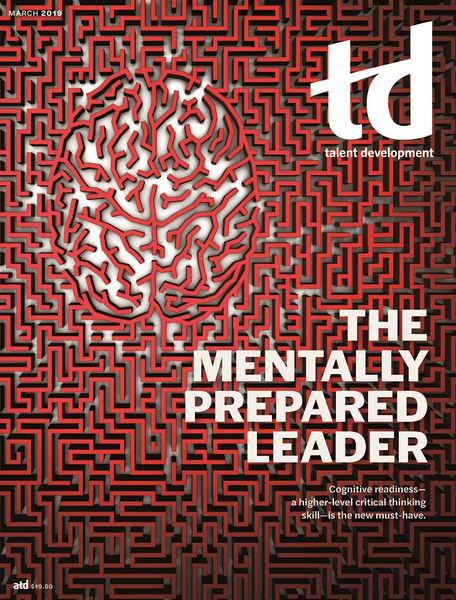TD Magazine Article
Don’t Make Things Difficult
A review of Simplify Work: Crushing Complexity to Liberate Innovation, Productivity, and Engagement by Jesse W. Newton
Fri Mar 01 2019
Simplify Work: Crushing Complexity to Liberate Innovation, Productivity, and Engagement
By Jesse W. Newton
Morgan James Publishing, 154 pp., $16.95
Every day, talent development professionals look for ways to attract and retain the best people for the most integral roles in their respective organizations. Part of this effort involves boosting the future outlook of their company. This outlook is dependent on strategy, policy, process, and perspective. In Simplify Work, Newton explores company policies related to the attributes and processes of organizations "that \[treat\] people as cogs in a machine."
In five chapters, Newton lays the foundation for making work life simple. He offers historical perspectives from the Industrial Revolution to the bureaucracy of modern-day work to highlight how creativity is stifled, which lowers morale and leads to diminished output and involvement from talented workers. He proposes that optimizing the individual, clearing the clutter of processes, and integrating useful system support can serve the cause of simplicity.
This text poses a question we've all found ourselves pondering at one point in our careers: "What if we could take a fresh look at our businesses, reconsider what is really important, and start to focus our time and energy on those things that matter?" Those asking believe that the changes needed to achieve such goals are implausible. Newton suggests the exact opposite—that such an endeavor is possible, starting with both the individual and the organization, and he offers perspectives on methods known to unravel the "spaghetti" of complexity to simplify work.
What makes this book exciting is Newton's ability to outline problems at work that we've all experienced and present solutions that we secretly—or not so secretly—want to implement. He relies on his own experiences to communicate how a new workplace culture and personal habits can be shaped to meet the needs of innovation, productivity, and engagement. He poses questions we dare not ask outside of Friday happy hour venting. Readers may find themselves nodding in agreement at several points he raises. However, there is room for critique; one could argue that Newton doesn't account for possible pitfalls of experimentation to implement the right solution.
The author concludes with an invitation to simplify work. Assess and determine what's blocking you and your organization from achieving your best work. Take a hard look at the problem and be willing to adopt new, strategic solutions. This is a message worth reading to better understand that, while complexity is not all bad, complexity that makes things hard to get done with no return on investment is the costliest mistake an organization—and an individual—can make.
You've Reached ATD Member-only Content
Become an ATD member to continue
Already a member?Sign In

